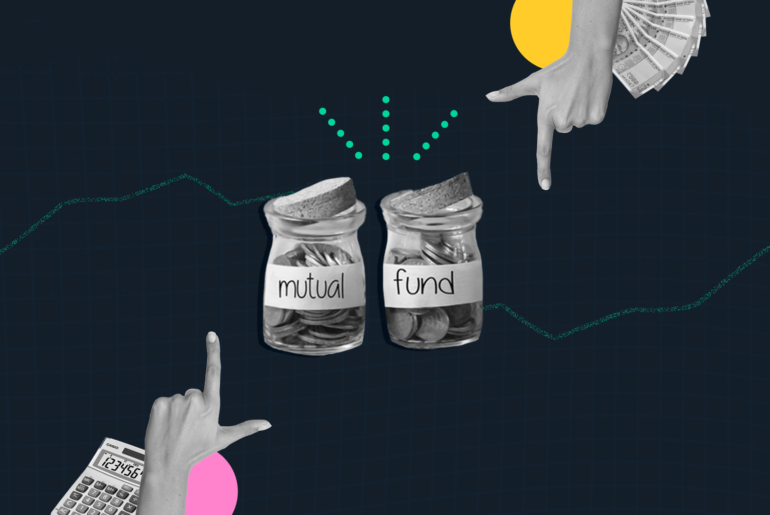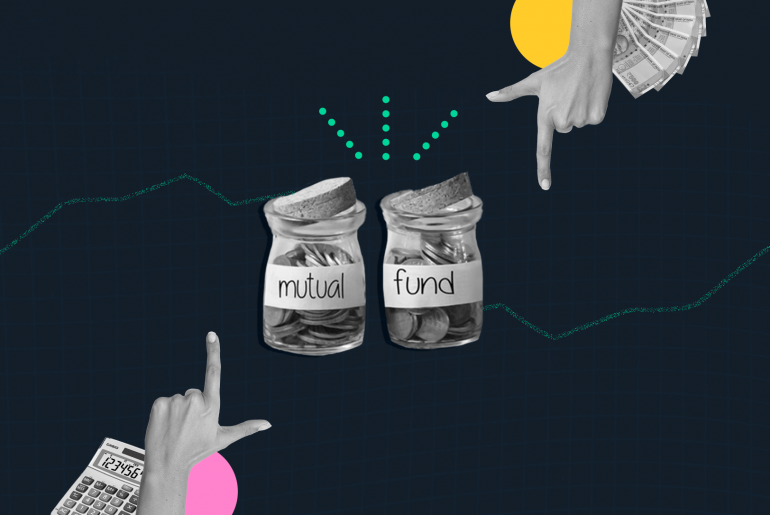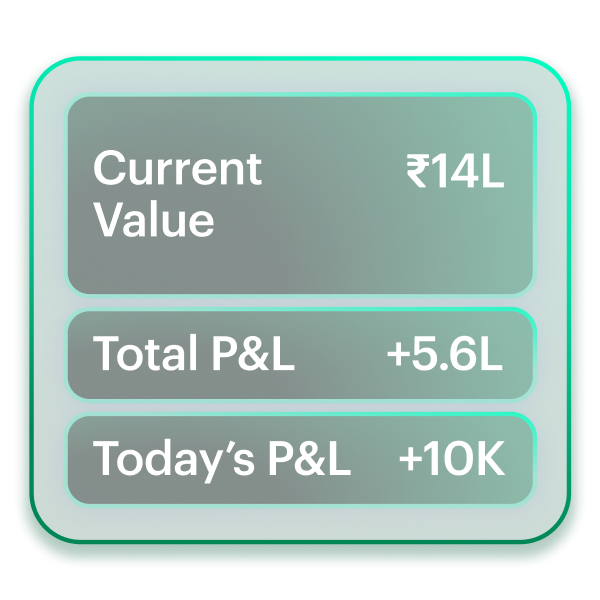Last Updated on May 24, 2022 by Aradhana Gotur
Passive investments have been gaining traction in India over the past few years. In passive investing, the investors’ choice is simplified by offering a portfolio of shares or assets that are part of a market index, mirroring it, thereby, capturing the entire market or a market segment through such investments.
Index funds and Exchange Traded Funds (ETFs) are the most popular ways to invest passively in the equity market. Although both are easily confused and the terms interchangeably used because they both consist of a portfolio of shares that tracks a market index, the difference between ETF and index fund is in their mode of operation. Let’s take a detailed look at index funds vs ETFs to assess which may work for you.
One of the most significant difference between ETF and Index Fund is in terms of where and how they are transacted. index funds are sold at the end of the day like other mutual funds, while ETFs are traded on the stock exchange like shares. Although index funds have lower expense ratios than actively managed mutual funds, it is still higher than that of ETFs.
On the surface, an ETF would appear to be a more efficient instrument in terms of cost and liquidity, however, the market functions complicate the potential for ETFs that are less diversified than index funds.
Table of Contents
How do index funds work?
Index funds are mutual funds that involve pooling the capital investments of people and investing the combined corpus across select stocks. This portfolio of stocks mirrors a market index like the Nifty 50 or the Sensex. The fund manager replicates the constituents of the benchmark index the fund tracks, and in the same proportion for asset allocation as in the benchmark index. Therefore, they are designed to deliver returns equal to, or almost equal to that of the benchmark index. All in all, index funds strive to match the movement of the financial markets and not beat it.
However, there is often a marginal difference in the returns of the index and the index fund, called a tracking error. The role of a fund manager encompasses keeping the tracking error to a minimum. This is also one of the criteria when selecting index funds.
Index funds are passive funds because they do not require the continuous intervention of the fund manager or research and analysis for identifying opportunities in the market or to prepare a strategy. This results in reduced expense ratio for the funds as compared to actively managed mutual funds. Index funds are, therefore, low-cost investments.
When it comes to redemption of index funds, they function similarly to other equity mutual funds – they are sold on the basis of Net Asset Value (NAV), which is decided at the end of the day when the market closes.
Who can invest in index funds?
- Index funds are suitable for those investors who wish to invest in the equity market but are wary of the volatility of stocks.
- Investors looking to buy the whole market may consider investing in index funds
- Index funds are good for those who want stable returns that match (balanced risk-return)
- Those with a long-term wealth creation plan may consider adding index funds to their portfolio
How do ETFs work?
Similar to index funds, Exchange-Traded Funds pool capital from investors and put it in a portfolio comprising stocks that are components of a benchmark index like the Nifty 50. An ETF may also track a commodity index like the Gold Price Index (Gold ETF).
ETFs are a unique proposition that are like mutual funds in their composition but can be traded throughout the day like stocks (mutual funds are redeemable only at the NAV at the close of trading for the day). The unit price of ETFs vary throughout the day based on demand and supply. ETFs combine the diversification benefit of mutual funds with the ease of trading that stocks offer.
The expense ratio of ETF is lower than that of index funds but there are additional costs to owning an ETF. Since it is listed on the stock exchange, it requires a Demat account in order to trade as well as broker fees, the costs of which add up to making it expensive. There is a likelihood of tracking error with ETFs too. To avoid missing out market opportunities due to tracking error, it is prudent that ones with minimum tracking error be shortlisted.
Who can invest in ETFs?
- Investors who want low risk and predictable returns from specific market segments
- ETFs are suitable for those investors who want the option to trade in the market throughout the day but also want the advantages that a mutual fund provides
- Although the expense ratios of ETFs are minimal compared to index funds, this investment is suitable for those investors who have taken additional costs of trading on the stock exchange into account
What are the key differences between ETF and index funds?
ETFs and index funds are both passive investments that track a market index, while providing diversification of portfolio, and have lower management cost (expense ratio).
Following is a table that highlights ETF vs index fund based on various criterions:
| Criteria | ETFs | Index fund |
| Aim | Long-term investment and market strategy | Stable long-term investment and returns |
| Expense ratio | Lower than index funds | Lower that active funds |
| Transaction | Traded like stocks | Traded like mutual funds |
| Demat account | Required | Not required |
| Brokerage Charges | Yes | No |
| Pricing | Based on demand and supply | Based on NAV at the end of trading session |
| Volatility | Price movement throughout day | Less volatile than ETFs |
Passive investment through index funds and ETFs has seen an exponential growth in India in the last decade. The choice of whether to invest in index funds or in ETFs depends on the investment goals, duration and risk appetite of the investor. Index funds and ETFs have the potential to return well over the longer term, when the investor gives the funds time to tide over short-term volatility and grow in value. The choice of investment that may work for one investor might not be able to meet the requirements of another. Therefore, investors should evaluate their choice of investment in accordance with their specific risk profile and investing strategy.




